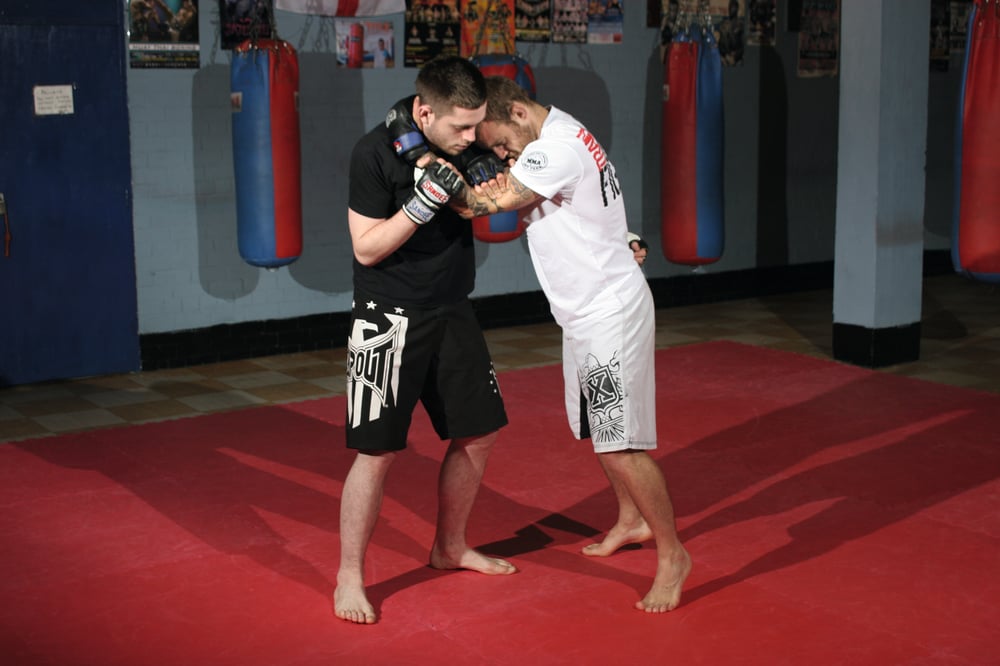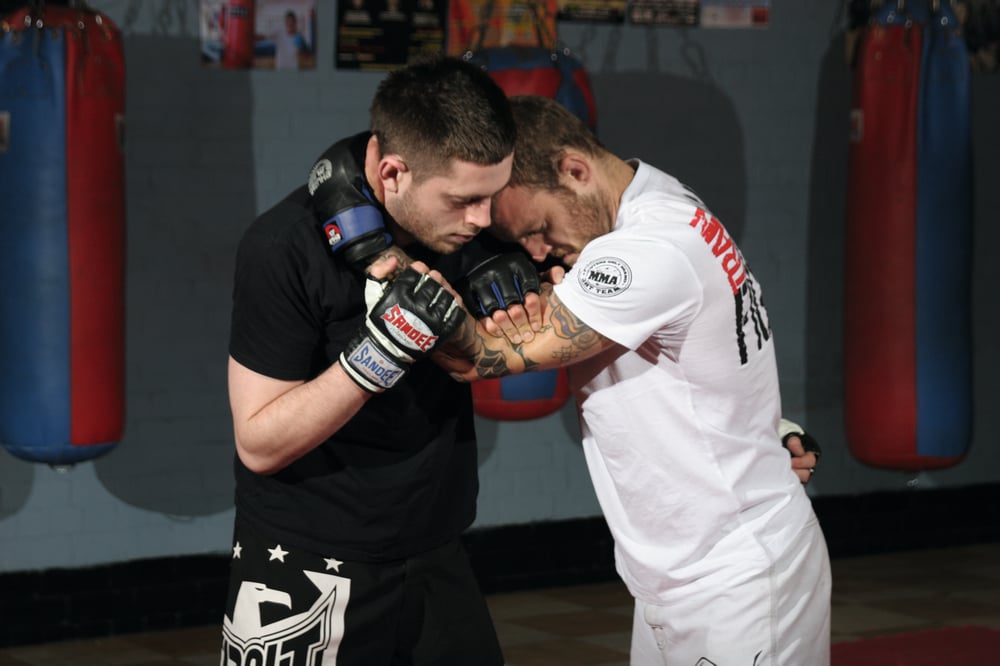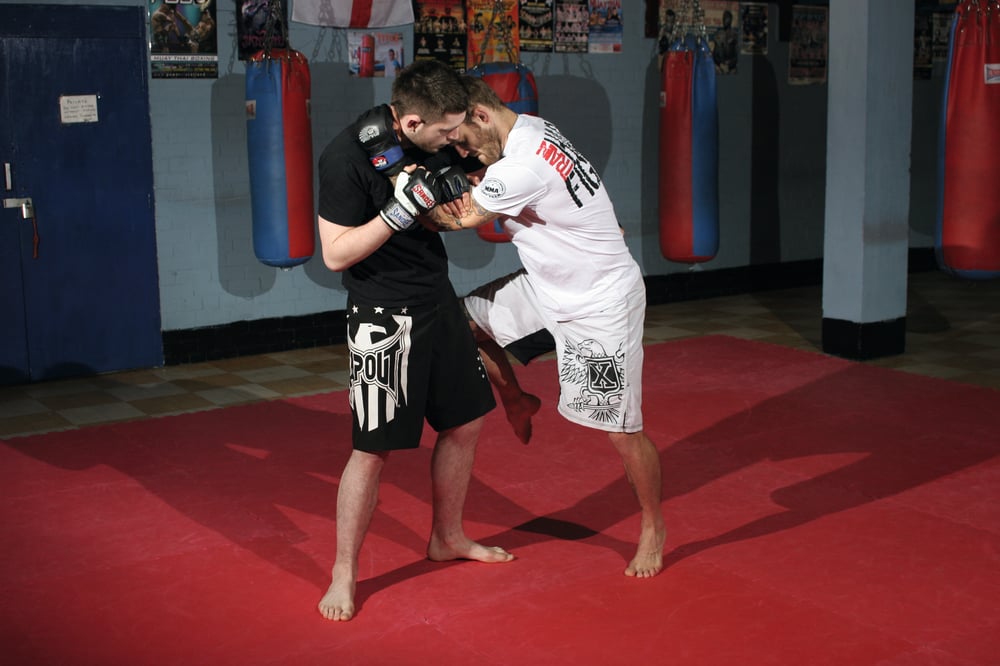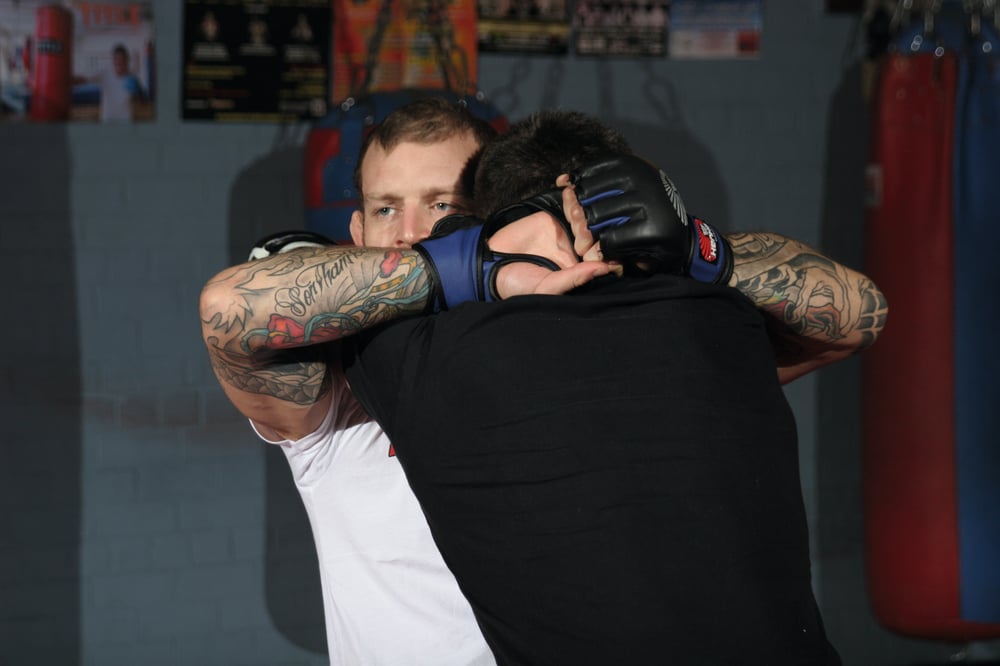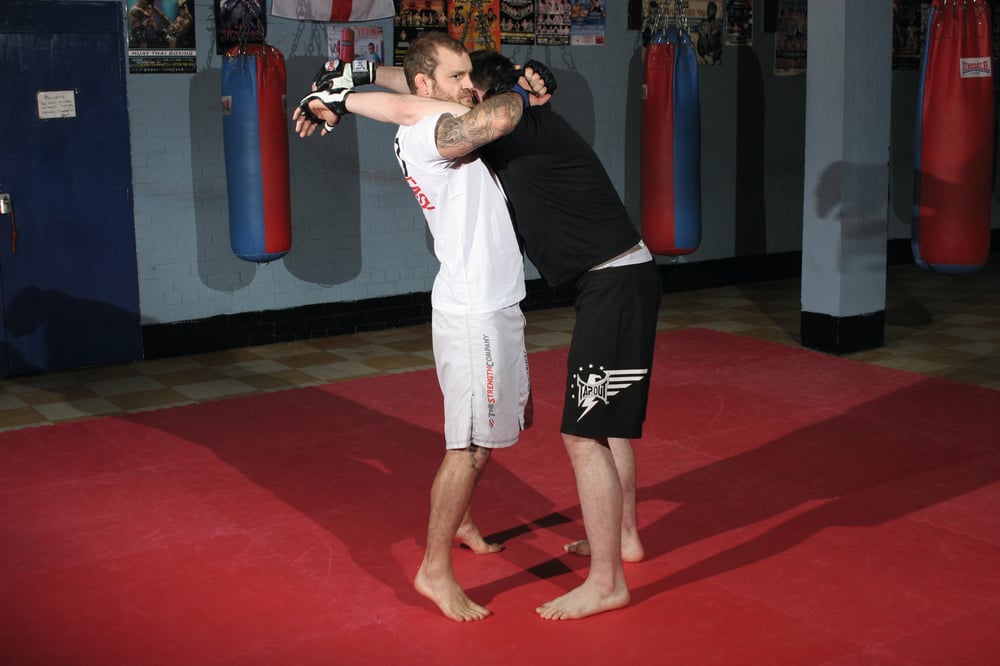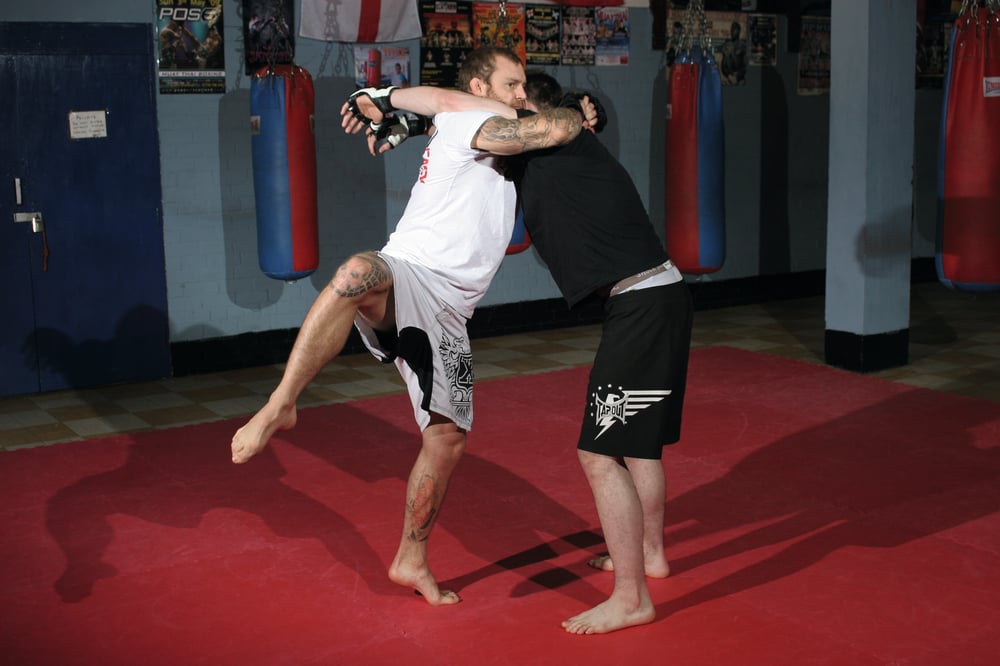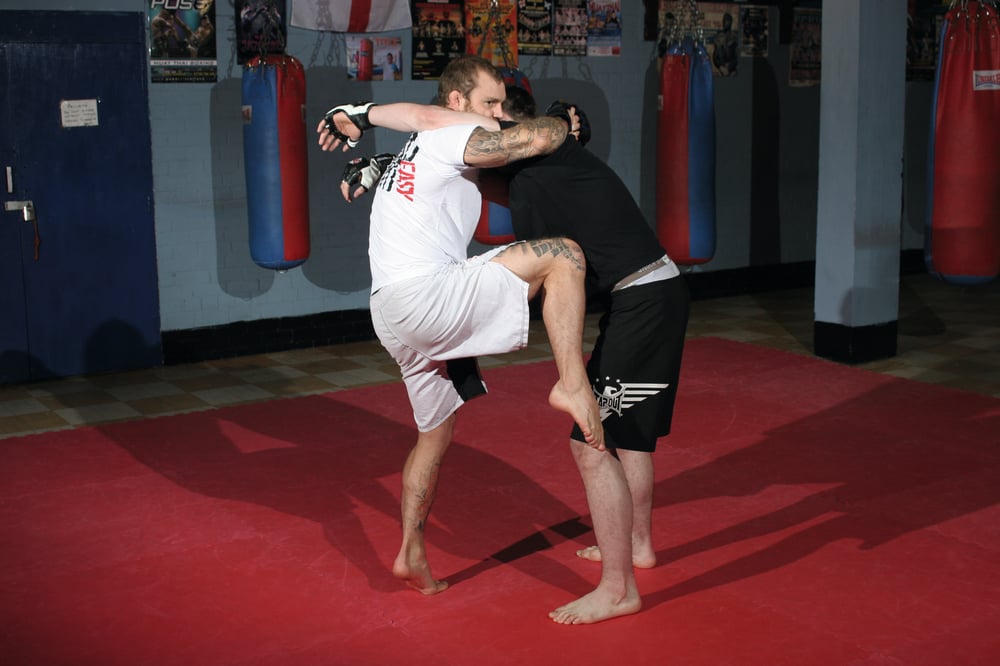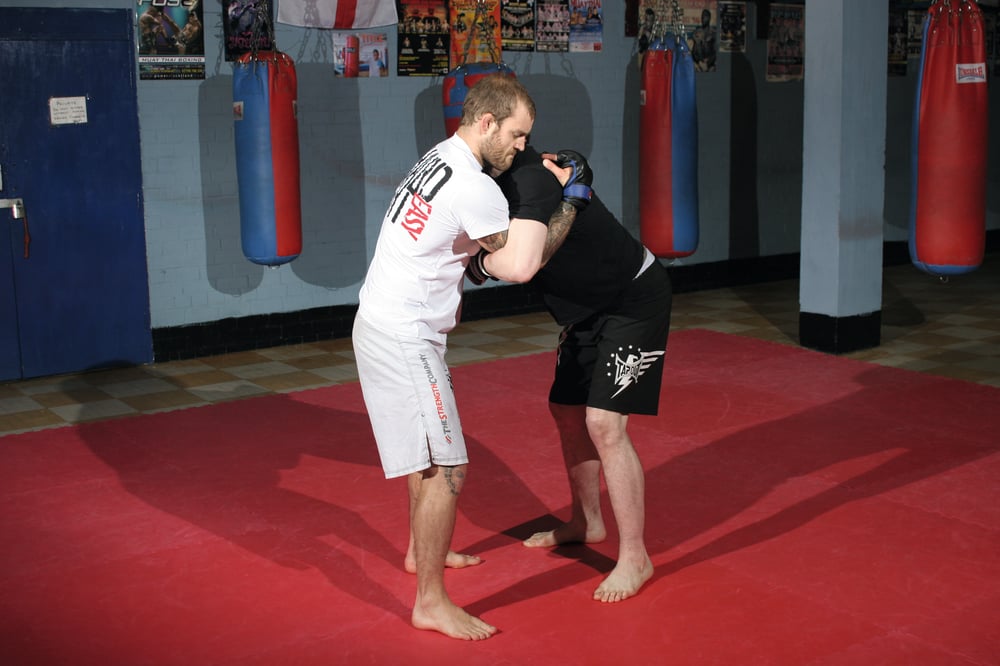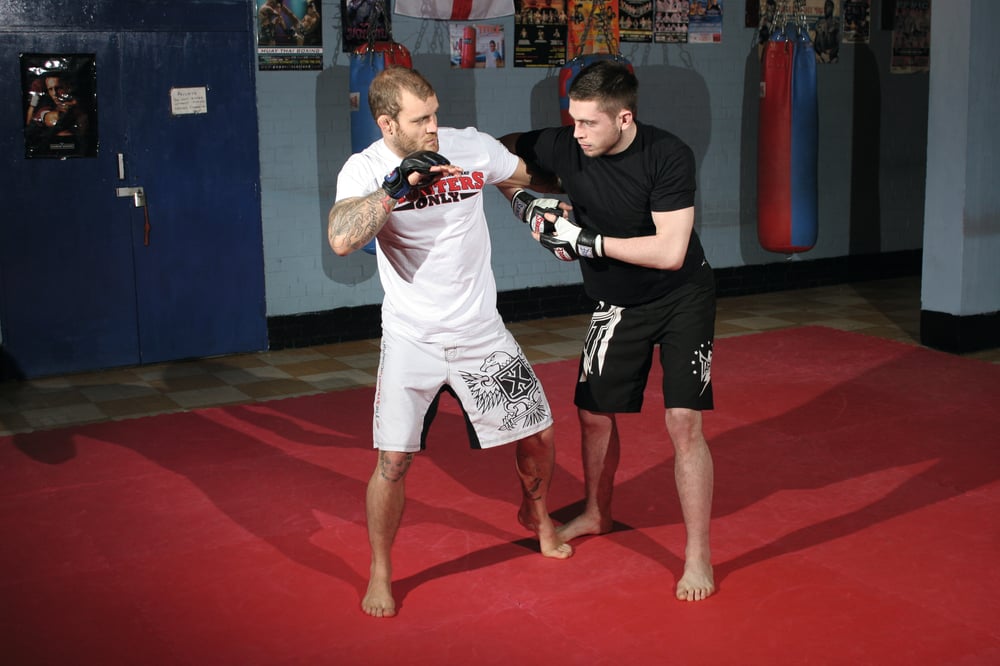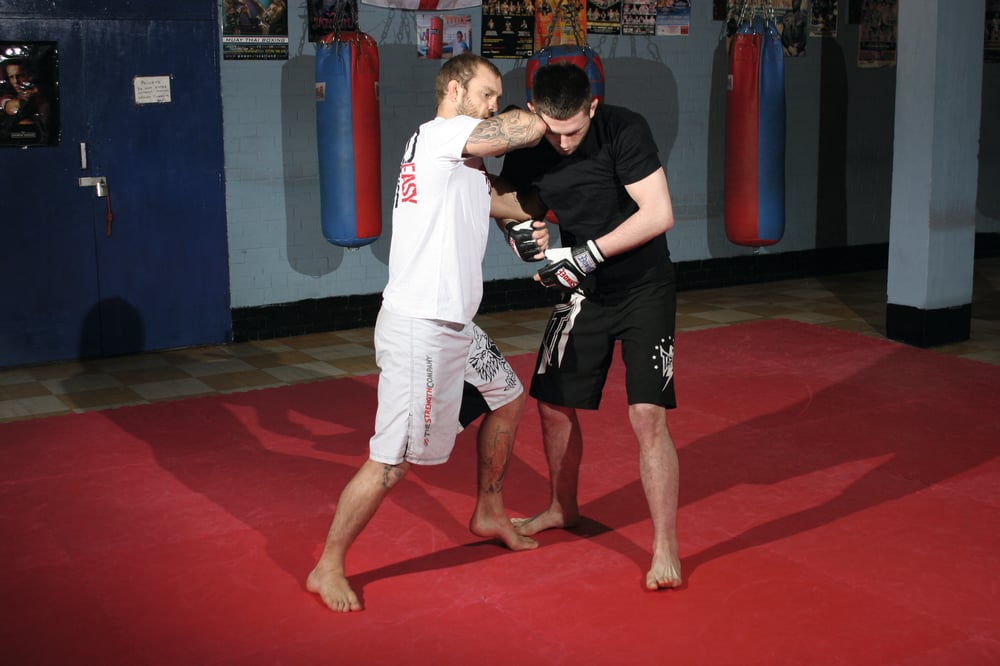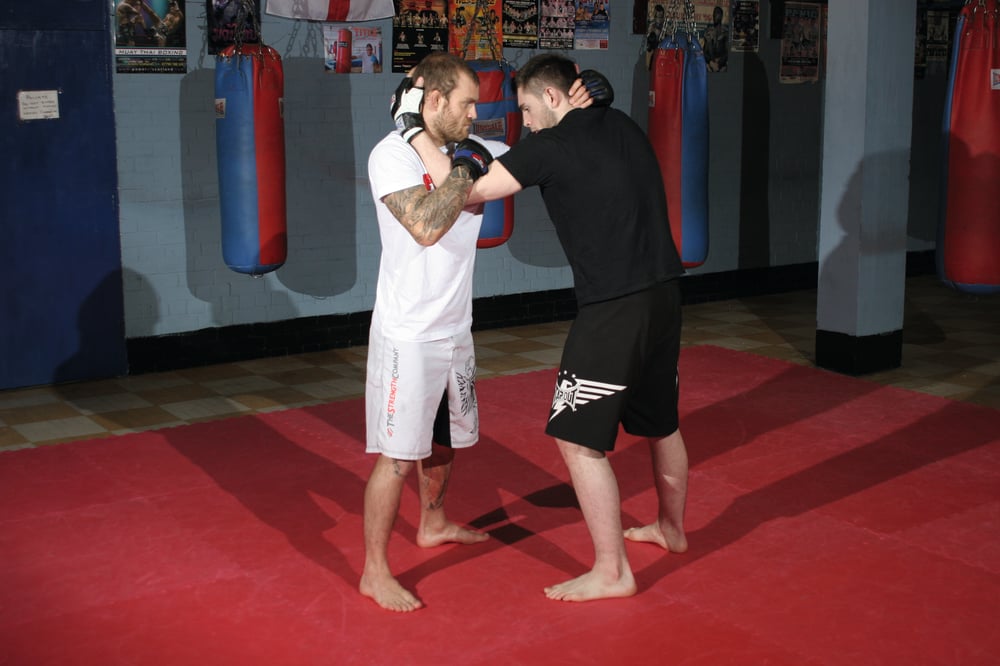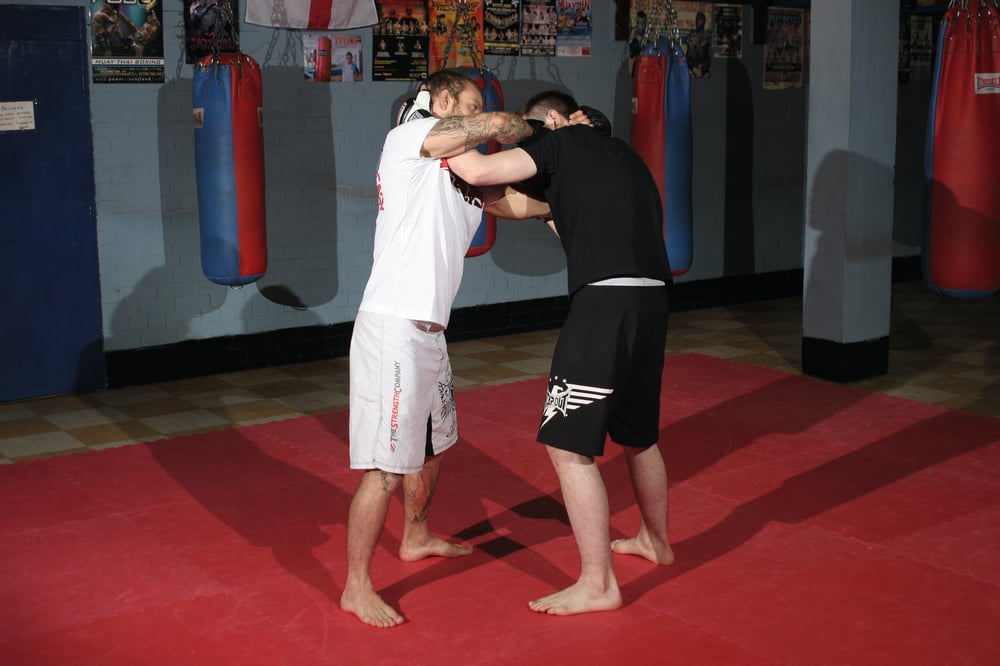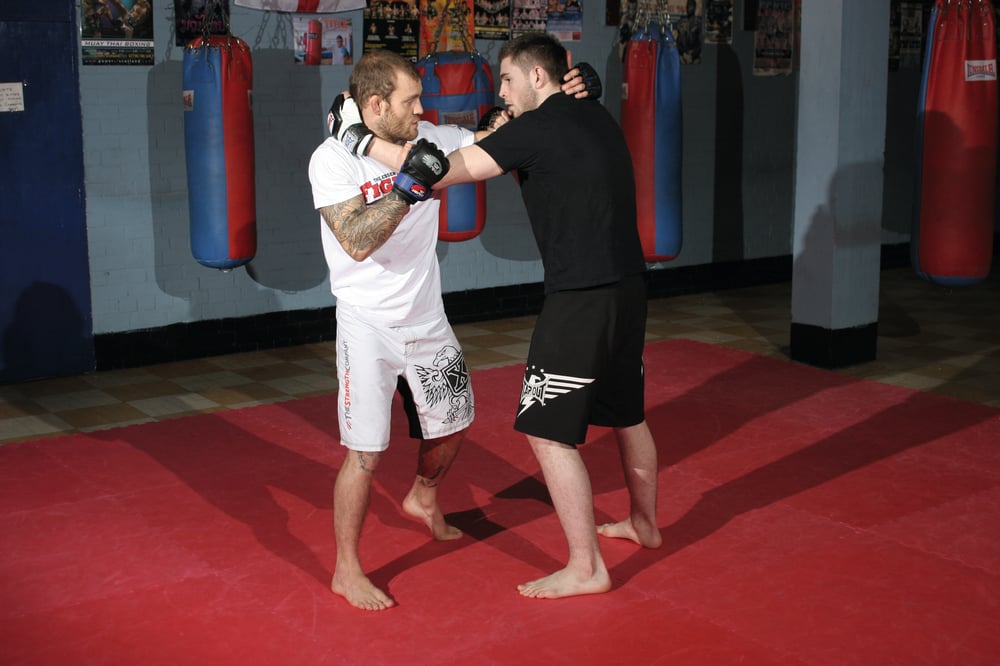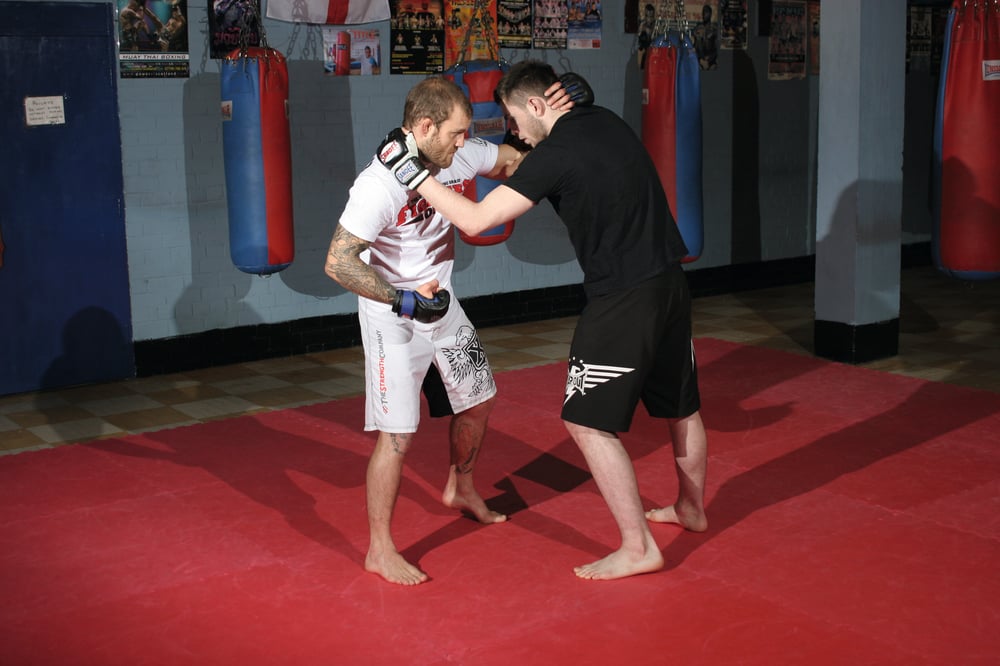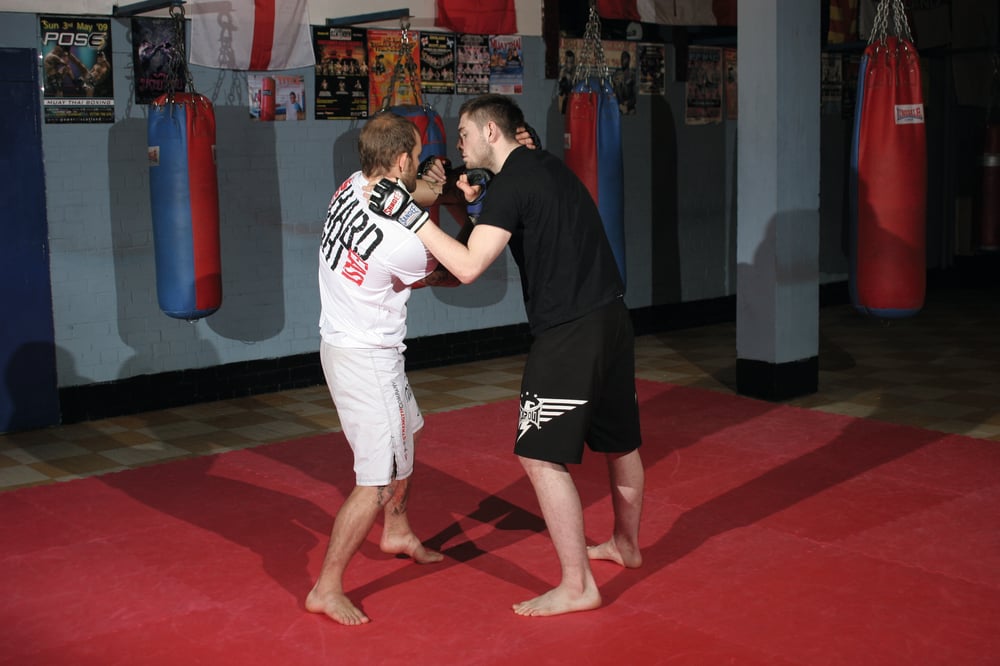
Issue 064
July 2010
Modified tie-ups
Modifying conventional tie-ups is a good way to wear out your opponent and limit their offense. Take a look at GSP vs Penn 2 for some good examples of these kind of tie-ups in action.
1 Pete supports his overhook by linking his arms in a mata leao grip and holding the collar tie. This will make it very difficult for Tommy to counter the overhook by driving up his underhook.
2 Detail of the frame.
3 From here Pete can hammer knees at the outside and inside legs to cause fatigue and hamper Tommy’s footwork later in the fight.
Double Underhooks
Using high double underhooks is a good way to make the opponent's ribcage vulnerable by stretching out the intercostals.
1 Pete is using the double underhooks high behind Tommy’s neck. Pete uses an S-grip, which helps keep his elbows high, preventing Tommy from powering down his overhooks. If Pete were to employ a gable grip here his elbows would naturally point down and make it easy to counter with the double overhooks.
2 Pete walks his hips in and pulls Tommy’s shoulders in close.
3 Pete skips out to the side, cocking the knee.
4 Pete jumps back in, slamming the knee into Tommy’s exposed ribcage.
5 Here Tommy has succeeded in powering down his double overhooks, leaving Pete flat-footed and Tommy’s ribs much better protected.
6 Instead of using energy persisting with the underhooks from a weaker position, Pete slips one side out and cocks the elbow.
7 Pete delivers the elbow to the temple.
Collar and elbow
Starting from an even position like the over-under or collar and elbow means you must act quickly and decisively to create a situation that favors you.
1 Pete and Tommy have an even single collar and elbow tie-up.
2 Pete throws the right hook over the top of Tommy’s arm, obliging Tommy to use his elbow to defend the hook.
3 Tommy is trying to block the hook, and so leaves a gap up the center.
4 Pete cocks the uppercut.
5 Pete snaps down on the collar to pull Tommy’s chin down on to the incoming uppercut.
...

